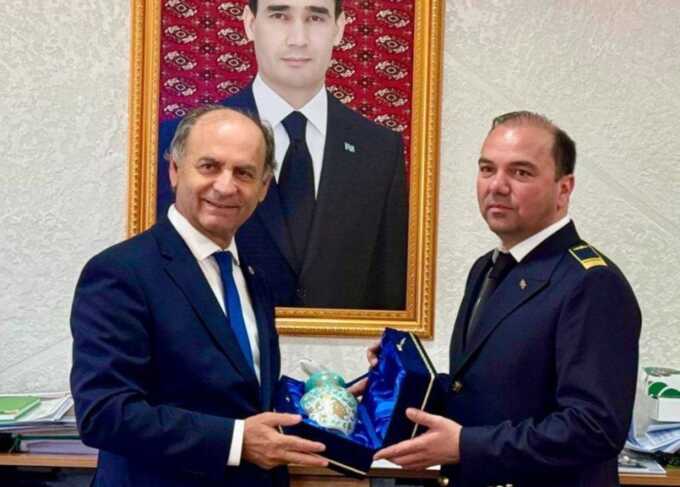Turkmens face higher airfares due to monopoly
Turkmenistan’s citizens face exorbitant airfares due to widespread corruption and nepotism in the state-controlled aviation sector. Monopoly practices, a "ticket mafia," and border restrictions have stifled competition and forced travelers to pay inflated prices, further burdening a population with a minimum monthly salary of just $60.
Turkmenistan’s citizens have been forced to pay exorbitant airfares for years due to corruption and nepotism in the civil aviation sector, according to an investigation by OCCRP partner Turkmen.news published Monday.
The outlet found that a small group of Turkmen officials has allegedly stifled competition in the aviation industry, keeping ticket prices high for personal gain. This has disproportionately burdened passengers in a country where the official minimum salary is approximately $60.
Investigators noted that ticket prices remain inflated despite the low cost of aviation fuel and employee wages.
Turkmenistan Airlines, the state-owned carrier, charges ticket prices comparable to major international airlines like Turkish Airlines and FlyDubai. However, tickets for these same airlines are significantly cheaper when purchased in neighboring countries. Turkmen authorities reportedly prevent citizens from crossing borders to access cheaper flights abroad, such as those departing from Uzbekistan.
The investigation also revealed that Turkmen authorities have denied numerous foreign airlines entry into the local market to avoid creating competition. Turkmen.news claims that documents it obtained and sources reporters spoke to suggest that a cartel agreement between Bayram Baymuradov, head of Turkmenistan Airlines, and leaders of foreign carriers has driven up ticket prices for destinations such as Dubai and Istanbul.
Passengers also face hurdles due to what journalists have labeled a “ticket mafia.”
While 60% of tickets are supposed to be sold online they often appear sold out, even when seats remain available, according to the outlet. These tickets are instead funneled to intermediaries who resell them at inflated prices.This system is allegedly controlled by Deputy General Director Guvanch Abashov.
For instance, tickets for domestic flights from Ashgabat to Turkmenabat, officially priced at $7, are often resold for $25 or more, sometimes reaching $100 during the peak of the season. Bribes are reportedly required at airports for passengers seeking specific seating arrangements.
Nepotism within the civil aviation sector seems to exacerbate these issues. Relatives and friends of officials are allegedly appointed to key positions, regardless of qualifications. High-ranking officials, including presidential adviser Kakageldy Charyyardurdyev and Chairman of the Supreme Control Council Dovlet Tashliev, reportedly shield aviation executives from accountability despite repeated violations identified by inspections.
The investigation highlights how corruption and mismanagement in Turkmenistan’s aviation sector harm the economy, undermine competition, and place undue financial strain on the nation’s citizens.
Read more similar news:
Comments:
comments powered by Disqus


































